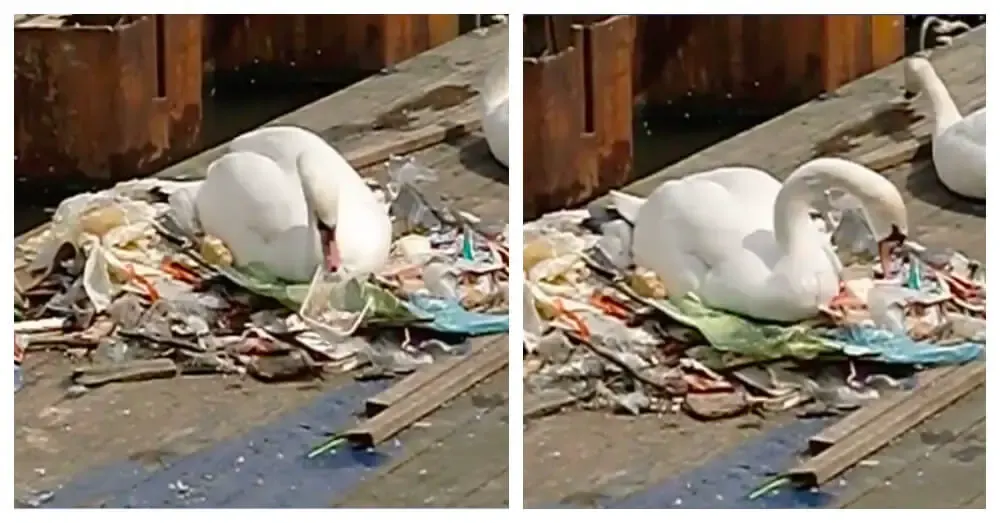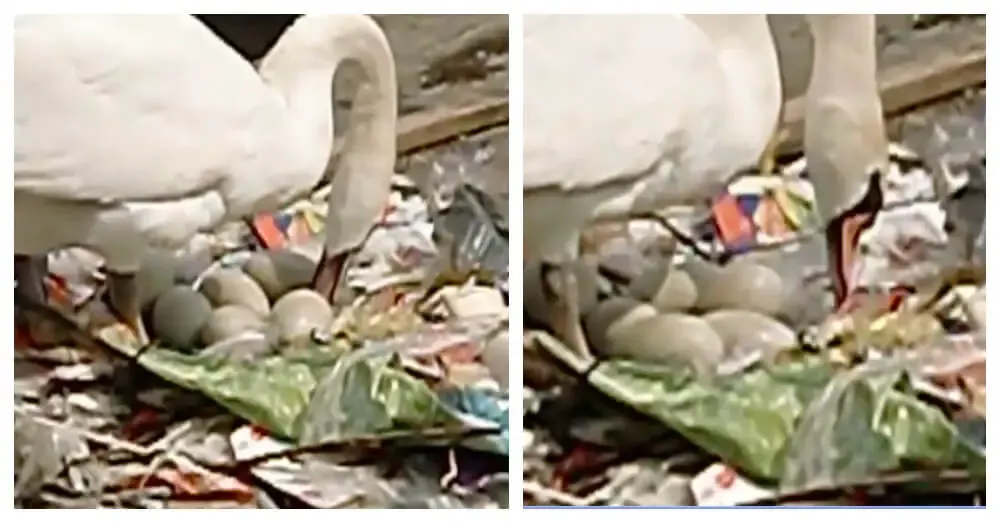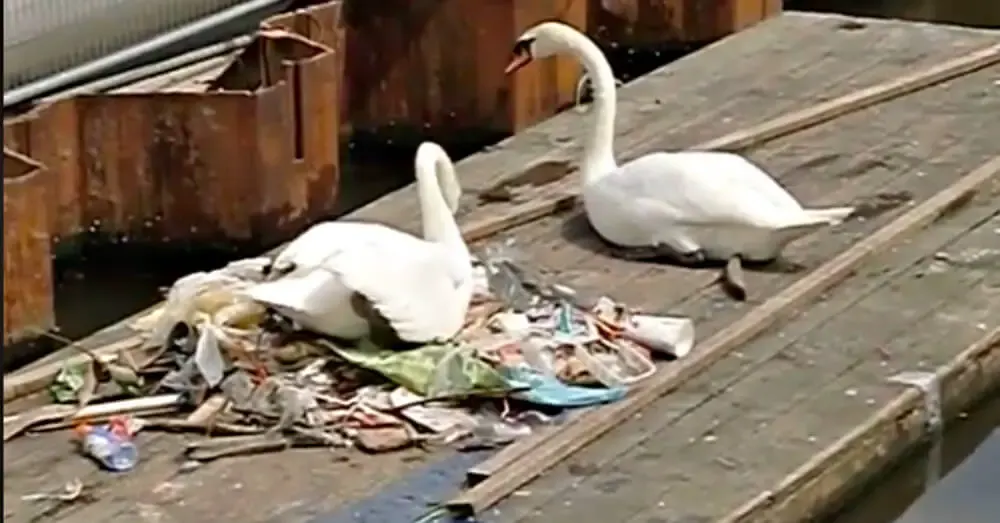Plastic trash can be found nearly everywhere a person looks and wildlife is suffering from this unnatural debris.
According to some recent studies, the planet’s oceans are full of roughly 1.8 trillion plastic pieces of trash.
There are photos of marine animals getting stuck in bags, wiring, and other pieces of plastic. Birds are even suffering from this overflow of trash.
They are being forced to build nests out of our trash rather than natural resources.
Although the canals flowing through Amsterdam are an iconic scene in the city, they are full of plastic and other pieces of trash.

For decades, these canals were treated like garbage cans and sewage systems. Although the water quality is improving, there is still a lot of plastic floating in these canals.
There’s a heartbreaking video that was captured in the city a few weeks ago.
Two desperate swans were captured building a nest from pieces of plastic trash around the canals.
A local animal activist by the name of John Oberg captured the sad event on video. He posted the footage on his Facebook page with a passionate caption.

The female swan has continued to move different pieces of trash to form the perfect nest for her young.
Straws, wrappers, bags, plastic bottles, and other pieces of trash comprise a majority of the nest.
In the video, the female can be seen readjusting the position of her eggs. Many people think that the babies won’t survive because of the lack of insulation.
Despite many efforts on behalf of the government and citizens of Amsterdam, trash still flows through the canals of the city.
Many visitors are disgusted by the amount of trash in that is left in the streets and on the local buses.

According to residents, there aren’t enough trash cans to accommodate the amount of waste being produced.
Oberg’s video has quickly gone viral with an accumulation of nearly six million views.
Many people have commented on the disgusting conditions in which these swans are forced to live.
The heartbreaking video has been featured on several news stations throughout Europe.
If you found this article interesting, show it to a family member or friend who cares about the environment.
